Description
IRM4720 Assignment 2 Memo | Due 15 August 2025. All questions fully answered. SECTION A: WORKPLACE CASE STUDY [20 MARKS]
The assignment is based on a specific organisation in South Africa that you should identify yourself. I recommend the organisation you are working at. If the organisation that you work at does not have such an implementation, do research, and find an organisation that implements any of the ITSM frameworks. If you cannot find an organisation, then create a comprehensive ‘fictional’ case study and answer the questions based on it.
The goal of this question is to provide you with an opportunity to experience how the ITSM frameworks are implemented in the real world and recognise the challenges faced by organisations.
NOTE: Use the provided template to answer this question.
Discuss the ITSM framework(s) implemented in the organisation you identified. Then, the implementation of the identified framework in that organisation will be discussed. The discussion points must cover the following aspects:
1.
The framework and specific framework components implemented are identified. (4)
The specific framework and relevant components, e.g., processes/functions, must be identified in the case of ITIL (NOT lifecycle stages). Full marks were not awarded for naming ITIL stages.
2.
How the framework components are implemented and what exactly are the objectives the components intend to achieve? (8)
Discuss how the framework components identified in Q1 are used to achieve identified objectives – based on only ONE framework and its components [A few marks awarded for discussing ITIL lifecycle stages].
3.
Critical analysis of whether the components are succeeding in achieving the objectives. If there are gaps, provide potential solutions or improvements. (8)
This must discuss the analysis of exactly the same components identified in Q2 above.
SECTION B: CASE STUDY [20 MARKS]
Given the process structure diagram below. Consider the airline reservation system and demonstrate how the process structure is applied from inputs to outputs, including each of the listed components of the structure. Your answer must list items in each component and give an appropriate example of that item.
For instance, the ‘Enablers’ component has these items:
Enablers
1.
Resources – Give an example in the reservation system
2.
Capabilities – Give an example in the reservation system
Do the same for the other components – Control (Policy and strategy, Plans and objectives, etc.) and Process (Activities, Tasks, Procedures, etc.)
SECTION C: RESEARCH ARTICLE [15 MARKS]
ITIL implementation inevitably requires some changes to organisations’ business processes. This question is based on the research article that investigated EIGHT case studies through organisational change for successful ITIL implementation. Use the Unisa Library eResources to download the article and answer the following questions after reading it in its entirety.
NB: You can use other sources to answer the questions, provided you reference the additional sources. RESEARCH ARTICLE: Blumberg, M., Cater-Steel, A., Rajaeian, M. M., & Soar, J. (2019). Effective organisational change to achieve successful ITIL implementation: Lessons learned from a multiple case study of large Australian firms. Journal of Enterprise Information Management, 32(3), 496-516.
1.
Discuss the relationship between Information Technology Service Management (ITSM) and ITIL. Highlighting the following aspects: definition, similarities, and differences in implementation approaches. (2)
2.
Discuss the term ‘organisational change’ (OC) with emphasis on different types and strategies of OC.
3.
What is your understanding of the term ‘socio-technical system’ (STS) in relation to ITSM? Provide a diagram to illustrate STS. (3)
4.
The eight case studies in this research implemented these FOUR processes and functions (except problem management with 7/8 implementations): service desk, incident management, change management, and problem management. Discuss why EACH of these processes/functions are most likely candidates for initial ITIL implementation in organisations. (8)
SECTION D: SHORT ANSWER QUESTIONS [70 MARKS]
Question 1 (3)
Define the term service asset and explain the two aspects service providers use to create value.
Question 2 (6)
Discuss the three types of service providers.
Question 3 (4)
Discuss the four Ps of service strategy.
Question 4 (8)
Discuss the four ways CSI recognises the value IT provides to the business.
Question 5 (4)
Discuss the four objectives of the CSI.
Question 6 (4)
Discuss four reasons for measurement in the IT service management environment.
Question 7 (4)
What are the objectives of the following functions?
Question 8 (6)
Three specific types of service level agreements (SLAs) are within service level management (SLM). List the three types of SLAs and describe each one.
Question 9 (14)
Give all the 7-step improvement process activities with a brief description of each.
Question 10 (17)
8.1 Discuss the difference between component availability and service available. (4)
NOTE: Show the formula and calculation through each step!
8.2 A service is comprised of five components, each with the following availability.
Component 1 – 92%; Component 2 – 98%; Component 3 – 99%; Component 4 – 94%; Component 5 – 97%.
Calculate.
8.2.1. Service availability percentage (2)
8.2.2. Service availability in hours per day (2)
8.3 A server had a downtime of 16 hours in 30 days. Calculate the server availability. (2)
8.4 Given that a service has an availability of 97.6% in a non-leap year. Calculate the total downtime in days. (2)
8.5 Given that a payroll server had six breaks in 90 days. Calculate the mean time between system incidents (MTBSI). (2)
8.6 Given that a configuration item has four breaks, resulting in 15 hours of downtime in 30 days. Calculate the mean time between failures (MTBF). (3)


















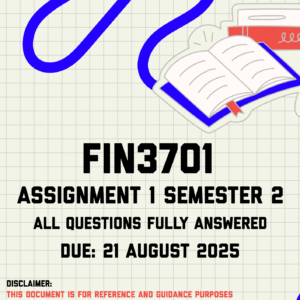




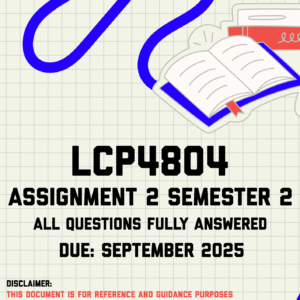
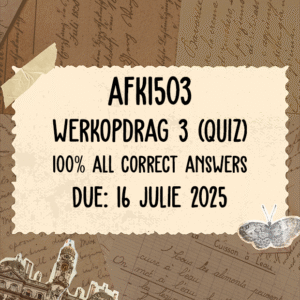






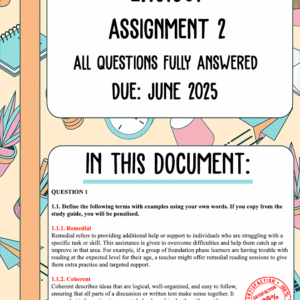









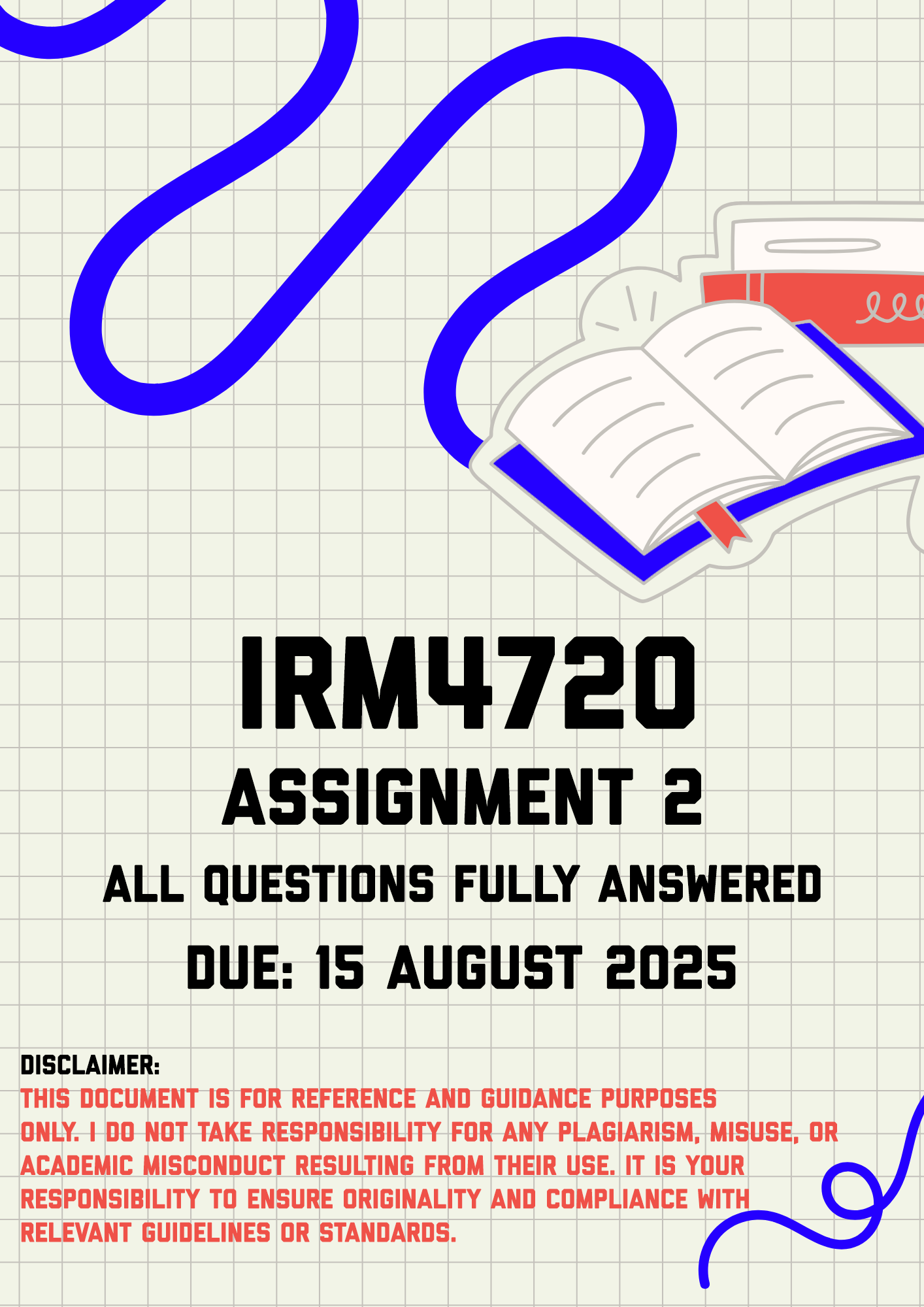



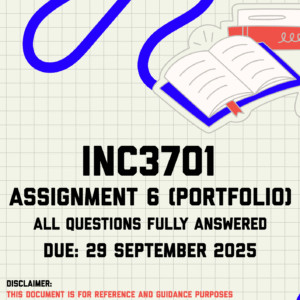

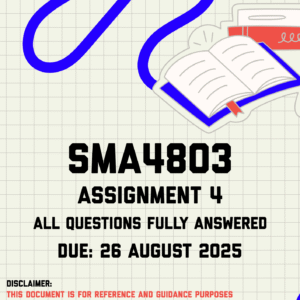



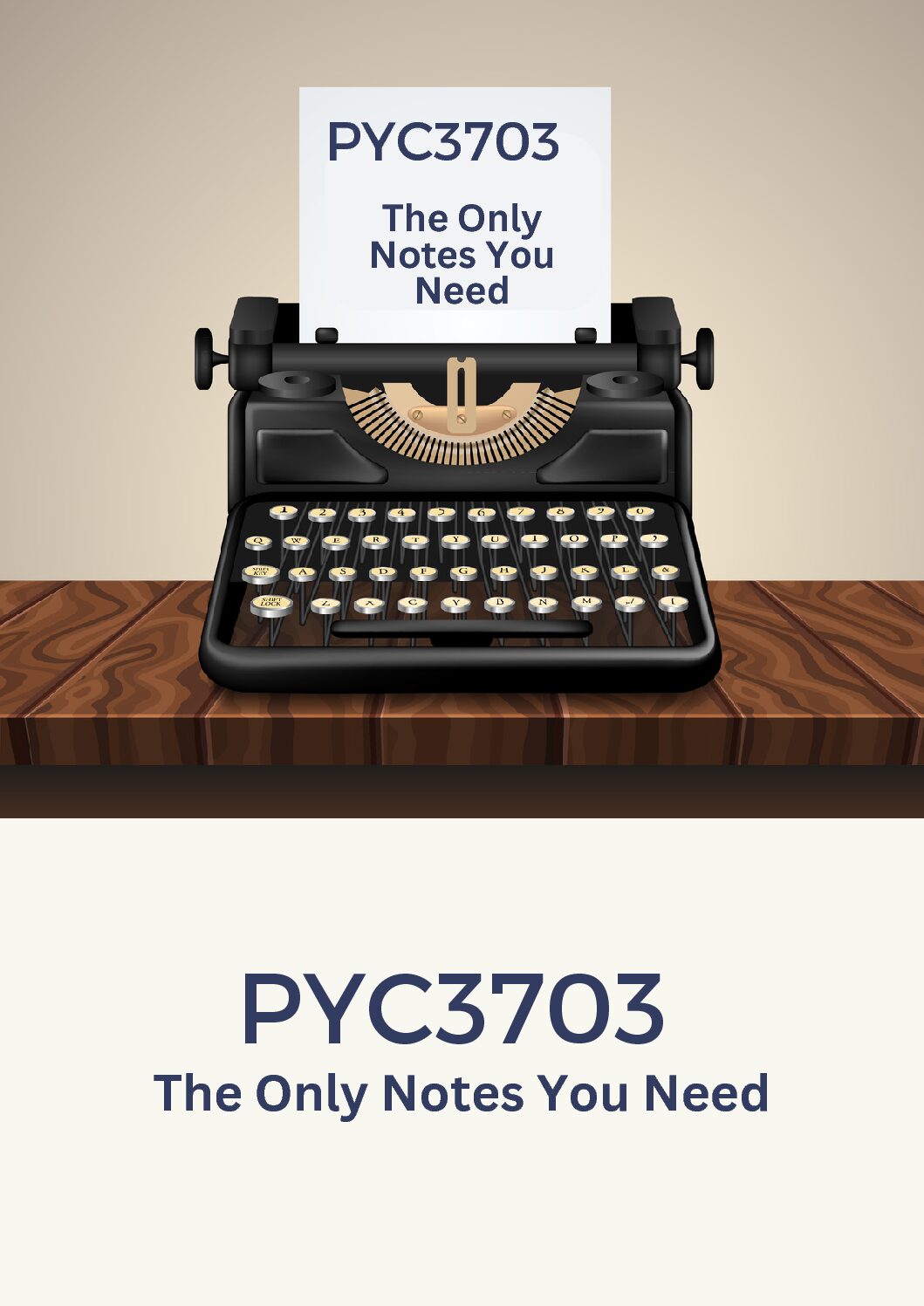
Reviews
There are no reviews yet.